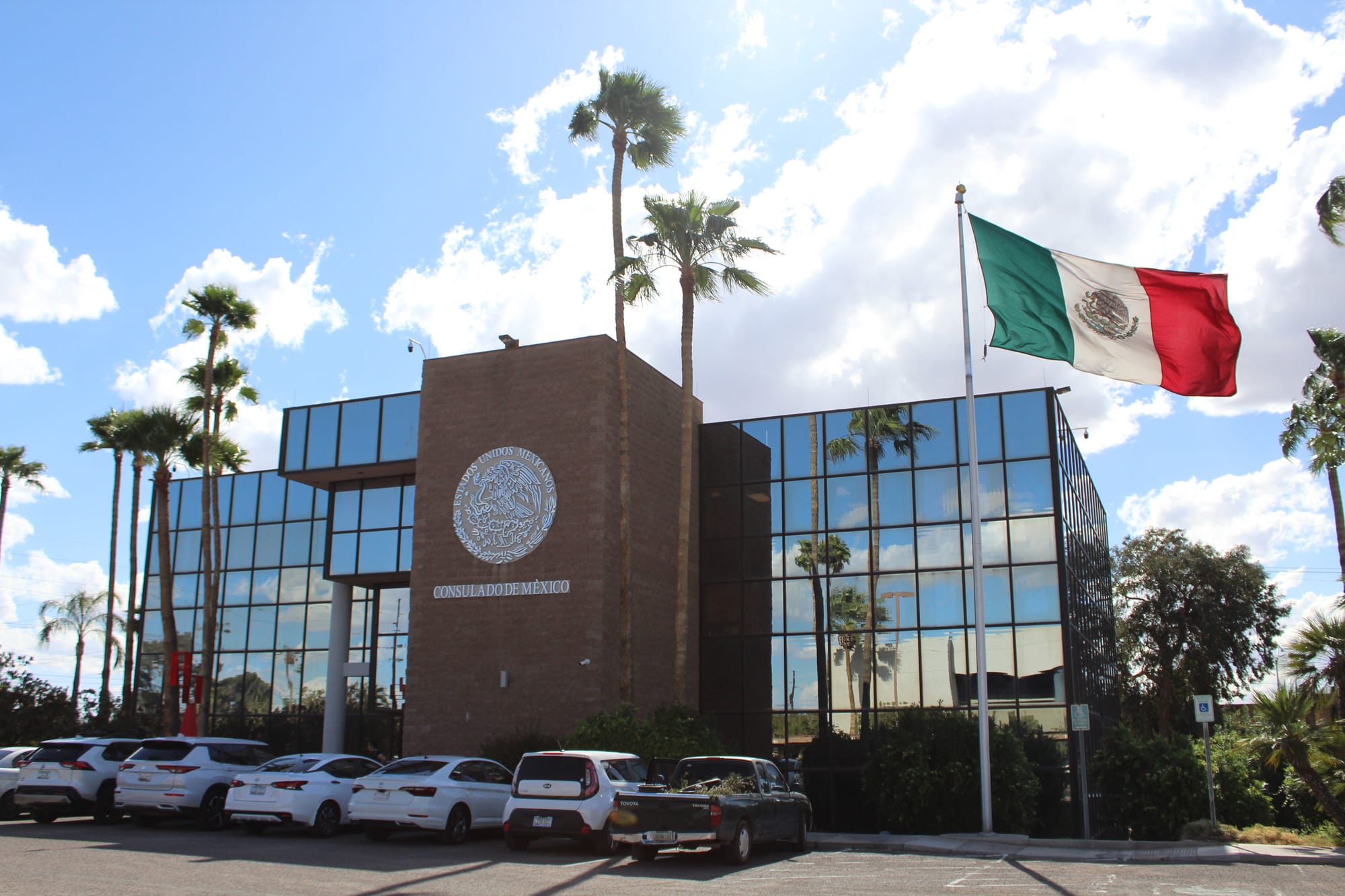Immigrant women face deepening healthcare crisis
Immigrant women in the U.S. face a growing health crisis shaped by systemic barriers, gendered expectations, and political policies that experts say increasingly work to silence and erase their experiences.

Azumi Valencia / BASIS Tucson North
Amid growing mistrust in public institutions and mounting barriers to care, immigrant women across the U.S. face a compounded healthcare crisis shaped by systemic inequities and deeply rooted gendered expectations.
As hospitals that serve largely low-income and uninsured patients lose federal funding and migrant shelters in the Tucson area shut their doors, experts say now is as important a time as ever to shine a light on the issue.
Megan Carney, an associate professor of anthropology at the University of Arizona and director of regional food studies, said understanding these challenges requires both a historical lens and urgent attention.
Women in general face disproportionate issues within healthcare, but this reality is exacerbated by immigration status, Carney said, cautioning that.this issue is complicated and should be examined with care.
“We must apply a kind of longer or deeper historical lens to interpret the forms of health inequity that surface among women of a migrant background,” she said.
Migrant women face unique health challenges resulting from the stress and depression attached to expectations created by the gendered division of labor in most migrants' home countries, Carney said.
As most women are coming from rural Mexican areas, the societal expectations of them as homemakers follows them into the United States.

But Carney said complications and limitations of the resources needed to live up to those expectations cause deep emotional turmoil and stress for many women, resulting in severe depression or anxiety.
“In my own research, a lot of women have talked about experiences of depression, feeling ashamed of being unable to provide for their children or families in the ways that they want,” Carney said. “In their own narratives of illness and how they experience their own health problems, it very much connects the manifestation of these health problems to the experiences of emotional stress and shame of being unable to fulfill what they feel are their responsibilities.”
This mental stress also manifests into physical problems. Female migrants are at higher risk for major critical health complications, Carney said, but face additional barriers that make it difficult or impossible to access the help they need.
These barriers generally fall into two categories: personal and systematic.
Personal barriers include social isolation, mistrust, and misinformation. Arriving in a completely foreign country – often alone or with young children – can lead to intense social isolation. And being separated from familiar culture and language only heightens this stress and makes it even harder to seek necessary healthcare, according to Carney.
She said many health issues that these women face stem from a state of anxiety, shame or depression, which can cause them to negate their own experiences and not seek out the care they need.
Other personal barriers include the looming threat of deportation and fears of being disqualified from permanent residency because of “public charge” deter many from seeking help, Carney said.
The final personal barrier Carney discussed is a lack of knowledge about where to get care, how the healthcare system operates, and how to find affordable treatments compounds the problem at hand.
Systematic barriers are those created by institutions, including hospitals, legal systems, and policies. These include financial hardships, especially with the cost of healthcare, accessibility, and language barriers.

Immigrants are disproportionately low-income and uninsured, and those who are uninsured receive considerably less and lower-quality care than those who are insured, Carney said.
With rising prices for basic healthcare needs, critical treatment and care become increasingly out of reach.
Accessibility also poses a huge challenge, especially for vulnerable populations, Carney said.
The location of the clinic and the availability of a competent and bilingual staff are incredibly important. Without these things, miscommunications can occur, which can be fatal in critical procedures and high-stakes medical situations.
Carney said this overlap between personal and systemic barriers makes it increasingly difficult for sensitive populations like migrant women to be able to easily access the help they need.
Although this situation has never been ideal, under the new and current administration, mistrust continues to grow.
Those who live in this reality are too frightened to speak out, fearing for the safety and immigration status of themselves and their families.
Even academics are uncertain about the future of their research.
“I believe that the objective is to ultimately negate and erase experiences that are perceived to be oppositional to the status quo,” Carney said. “There is very much a political agenda behind the defunding of the programs that provide direct support to the populations that we’re talking about.”
With shelters closing, clinics under strain, and fear of deportation silencing many, the compounded health crisis facing immigrant women continues to grow, often out of sight, but with lasting consequences.
Azumi Valencia is a senior at BASIS Tucson North, researching health disparities for immigrant women as part of her senior project.
Tucson Spotlight is a community-based newsroom that provides paid opportunities for students and rising journalists in Southern Arizona. Please support our work with a paid subscription.




